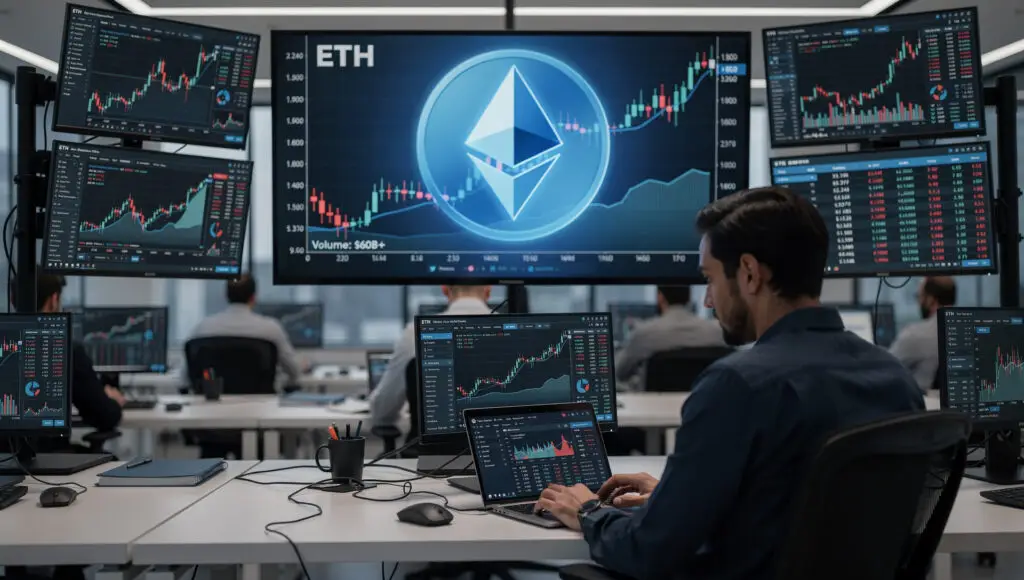As South Korea heads into its June 3 presidential election, a key issue creating ripples in the financial and digital asset sectors is the controversial ‘one crypto exchange–one bank’ rule. The nation’s two leading candidates, Lee Jae-myung of the Democratic Party and Kim Moon-soo of the People Power Party, have taken opposing stances, signaling potential shifts in the country’s approach to crypto regulation.
What Is the One Exchange–One Bank Rule?
Introduced as a measure to prevent money laundering and increase oversight, the rule mandates that each cryptocurrency exchange partner with only one bank to offer real-name verified accounts for deposits and withdrawals.
This structure, while offering transparency, has drawn criticism from both crypto exchanges and banks for limiting market competition, consumer choice, and operational flexibility.
Where the Candidates Stand
Kim Moon-soo, representing the conservative PPP, has taken a strong pro-crypto position. He has pledged to abolish the one-bank rule as part of his campaign platform, positioning himself as an ally to the domestic digital asset industry. His goal: liberalize crypto-banking partnerships to foster innovation, competition, and investor access.
In contrast, Lee Jae-myung of the liberal DPK has remained silent on the issue, suspending internal discussions. His reluctance to comment is widely viewed as a signal of support for maintaining the existing framework, likely due to concerns over money laundering risks and the concentration of capital at dominant exchanges.
Who Benefits From the Current System?
Currently, five Korean exchanges operate under the regulation, each linked to a single bank:
- Upbit with Kbank
- Bithumb with KB Kookmin Bank
- Coinone with KakaoBank
- Korbit with Shinhan Bank
- GOPAX with Jeonbuk Bank
Together, Upbit and Bithumb account for over 97% of total trading volume, with Upbit alone holding a 72% market share. This dominant market positioning has led to concerns that loosening restrictions could exacerbate capital centralization.
The Industry’s Push for Reform
Both the banking sector and crypto exchanges have lobbied for the rule’s relaxation. Critics argue that the restriction hampers growth and undermines stability. Multiple-bank partnerships, they claim, would enhance resilience, consumer protection, and service diversity.
During an April meeting with PPP lawmakers, Woori Bank CEO Jeong Jin-wan voiced support for expanding bank-exchange relationships, asserting that the rule had outlived its original purpose.
Financial Services Commission Stays Cautious
The Financial Services Commission (FSC), South Korea’s top financial regulator, has adopted a cautious stance. Although it acknowledges growing consensus in favor of change, it remains concerned about money laundering vulnerabilities in a more open system.
FSC Chairman Kim Byoung-hwan emphasized that any revision will depend on whether banks and exchanges demonstrate robust compliance and monitoring frameworks. “We will thoroughly assess whether these institutions are equipped to handle the added risks before making a final decision,” he stated during a recent press conference.
What’s at Stake in the June 3 Election?
This issue has become a litmus test for each candidate’s broader economic philosophy. Kim’s pledge to remove restrictions may attract younger tech-savvy voters and blockchain entrepreneurs, while Lee’s careful, regulation-heavy approach may appeal to traditional finance backers and risk-averse regulators.
Observers believe that the election’s outcome will significantly shape the future of crypto innovation and financial regulation in South Korea, potentially setting a global precedent.
Crypto Reform Hinges on Political Outcome
The debate over the one exchange–one bank rule is no longer just a regulatory technicality—it’s now a political battleground. Whether the rule will be preserved or overturned could hinge on the nation’s next president. For crypto investors, banks, and regulators alike, June 3 may mark a turning point in how South Korea balances financial innovation with systemic safeguards.















